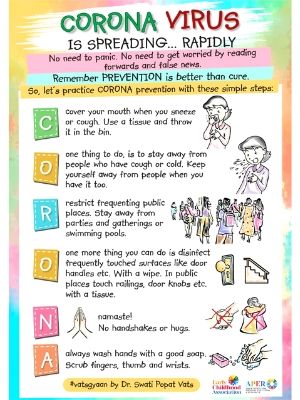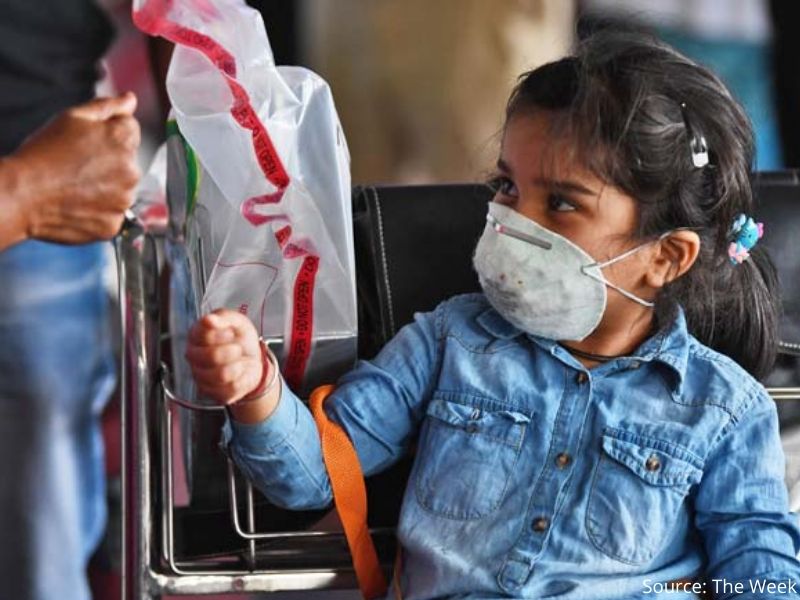According to a study by study in the New England Journal of Medicine, “children might be less likely to become infected” by coronavirus or may show milder symptoms. But it is always safe to make kids aware of what they should do and should not. “While some children and infants have been sick with COVID-19, adults make up most of the known cases to date,” reports the Centers for Disease Control and Prevention.
While talking to children can be tricky, it is always good to make them practice basic hygiene and cleanliness like coughing into their sleeve or using tissues, regular hand washing and not touching their face unless washed. But one has to be very careful so as not to create too much anxiety.
Sue Atkins, a UK-based parenting expert explained in her blog, “For children of all ages, it’s important for parents to reassure their children that the situation is under control. It’s also helpful for parents to explain that children in other countries aren’t getting hit very hard by the disease. The key is to keep the discussion positive. The information you decide to withhold from your kids is as important as what you tell them. Ask them what they know as school playgrounds and social media could mean they’ve got the wrong end of the stick! Reassure, inform & be sensible.”
Meanwhile, Ruchita Dar Shah, founder of FirstMomsClub says, “Honestly I don’t think it is the children who are panicking. But the parents who are panicking more. I think it’s most important that parents should not panic as children are always watching us what we do. We should practise what we preach. We should stay calm and talk to them.”

Prevention is better than cure. And advisory to all parents regarding coronavirus by Swati Popat Vats.
Shah further added, “Make sure if they are going out to play, they maintain social distancing. As children, they have a lot of energy and tend not to stay in one place and move around. We should tell them what they can do and what they can’t. We might look villans right now but it is for their own good. Plus, there is so much information on social media, we should be a little discerning as to what is true and what is fake. Not reacting to everything that comes in our WhatsApp inbox and figuring out which news is true is required. Both social and social media distancing is necessary. Give them healthy food to increase immunity and avoid junk food.”
In a study published by Pediatrics, the researchers found that about half of the children infected by COVID 19 had mild symptoms like fever, fatigue, cough, congestion and possibly nausea or diarrhea. While about 39 percent became moderately sick with additional symptoms including pneumonia or lung problems as revealed by CT scan, but no signs of shortness of breath. Another 4 percent had no symptoms at all.
Dr Swati Popat Vats of The Early Childhood Association of India recently circulated an advisory recommendation for children’s’ safety against the novel coronavirus that included “teaching children to always cover the mouth with a tissue and never with their hand while sneezing or coughing. If tissues are not available then wash hands immediately”; “avoid hugging or touching”; ensuring children wash their hands with soap or hand wash regularly and “teach them the correct method to wash hands.”
Not only kids, but Vats also asked parents of children if they have recently travelled outside the country to “sanitise all surfaces, doorknobs, railings that are frequently touched with disinfectant every two hours” and “ensure air conditioners are properly serviced”.
Posted in International, News























